When I was expecting my daughter, I researched everything I could think of that I might need to know about pregnancy, labor and delivery, taking care of a baby, and what to expect from my own body post partum. However, no matter how much research you try to do, there will always be things you have never heard about until you experience them for yourself.
Something that is not widely shared in discussions surrounding the birth experience and caring for a newborn is the strange new ways in which your post partum body will behave. Everybody’s experience is unique, so it’s not possible to know exactly how your own body will respond to giving birth and recovery. However, to give you a heads up on some possibilities I was unaware of and surprised by, I have created a list of ten of my odd post partum experiences.
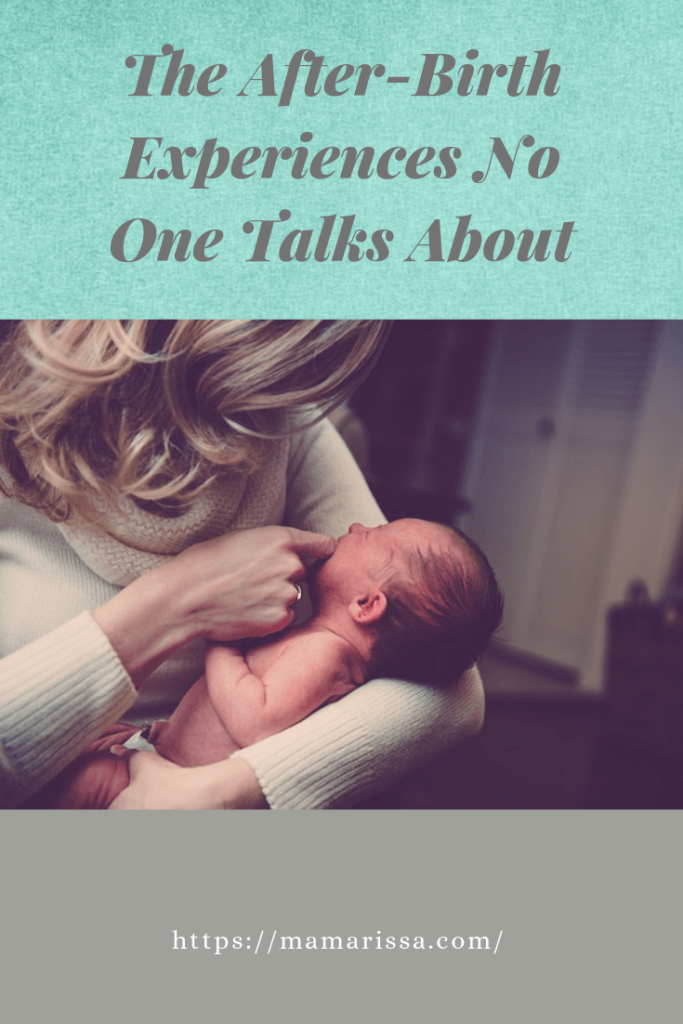
1. You might have cold sweats for a few weeks …
For the first couple of weeks after giving birth, I kept waking up (the rare times I was able to sleep) freezing cold to find my clothes and sheets completely drenched. This was really annoying, but it was just one of my body’s ways of shedding all that extra fluid that had built up in my body that last month of pregnancy. One of my family members mentioned having this same experience post partum.

I was also cold all the time for those first few weeks even though it was spring in the South and the temperature was warm. This is simply the result of hormones trying to rebalance in a new body that no longer houses a baby.
Do you have a Baby’s First Year journal yet, Mama? Get a FREE downloadable, printable one here!
The only advice I have for this situation is to expect your body to do some strange things and feel weird sometimes in the weeks following your delivery. You know how the first three months post partum is now often called the fourth trimester for the baby as he/she adjusts to life outside the womb? Well, it’s also a fourth trimester for you as your body and hormones adjust to singularity and – if you’re breastfeeding – the new way your body has to nourish your baby.
2. You might bleed for a long time after giving birth …
The “normal” amount of time post partum bleeding usually lasts is up to 6 weeks. However, as with my long labor, my body likes to take its sweet time with everything, so I bled for 10 1/2 weeks. I kept wondering if something was wrong and even had an ultrasound to check for retained placenta tissue, but everything was fine.
My midwife said it was just my hormones struggling to regulate and offered me birth control which I quickly declined. I felt fine and had bled for what seemed like forever with my miscarriage, so I knew my body probably just needed time to work through it.
I even had three instances of extremely heavy bleeding in the last couple of weeks before it ended – as in, saturated a heavy pad in twenty minutes and had to sit on the toilet until it stopped. This seemed concerning, but again, I felt fine so my midwife was not concerned and the bleeding eventually stopped without the use of drugs.

My doula also informed me that I had delivered a rather large placenta, which means I would have had a large area of tissue torn away in my uterus, so that could be why I bled for so long. This would make sense since I also bled twice as much as the average vaginal delivery after delivering the placenta.
It’s better to be safe than sorry, so definitely get checked out by your OB or midwife if your bleeding goes on for a prolonged amount of time, especially if something doesn’t feel right. But if everything looks good to your care provider and you’re not experiencing any concerning symptoms, just stock up on pads and try to be patient.
3. You might feel like you’ve been run over by a truck the first week after giving birth …
I knew labor would be a lot of work, but here’s what I didn’t realize beforehand:
- Labor can last longer than a 24 hour virus and is more exhausting.
- You might not be able to sleep/rest post delivery even if your baby sleeps because you feel the need to make sure your tiny new person is still alive every five minutes.
- You can lose A LOT of blood during delivery.

Because of all of the above, for the first couple of days following delivery, every time I stood up, I had this heavy, breathless, utterly exhausted feeling deep in my chest and for several weeks, I continued to feel light headed and faint whenever I exerted myself by going for a relaxing walk or doing some laundry.
Low iron levels can also contribute to low energy and feeling faint post partum, so my midwife prescribed thirty days of an iron supplement for me. Some moms encapsulate their placenta to take as a supplement which is also supposed to help regulate iron levels.
4. Your tear might be uncomfortable for longer than you expect …
I tore in one jagged place during labor and the doctor said it was between a one and two degree tear. That doesn’t sound too bad compared to another mama I know who had THREE tears, at least one of which was a third degree tear. I assumed I would be back to feeling like myself again “down there” by the end of the prescribed six week recovery time.

Turns out, full recovery can actually end up being more like three years! After becoming concerned about the fact that I can still, at times, uncomfortably feel where I tore over a year after my daughter’s birth, I recently made an appointment with my midwife. She told me that while it’s not necessarily normal to still have this issue, it is relatively common and will get better each year over a period of several years.
Once again, I would never advise you to neglect something that does not feel right in your body, so if you are having discomfort or pain long after you have “healed”, it’s a good idea to get it checked out just to be sure there isn’t anything more serious going on that requires therapy or corrective surgery. And personally, it eased my mind considerably to talk with my midwife about this sensitive issue.
5. You might get milk-engorged in your armpit …
During pregnancy, of course I had read all about this horrible monster called “engorgement” I was to expect a few days after delivery when my milk would come in. I was blessed – I never experienced any pain during this time as many women do, perhaps because my baby was nursing too often for my breasts to get painfully full.
However, what I did experience were lumps in my armpit. I discovered them when I started to shave as I was showering a few days after my daughter’s birth. I knew it had to be related to nursing due to the coincidental timing, but I had no clue what was going on.
(Are you planning to nurse your baby? Get my breastfeeding preparation checklist here!)
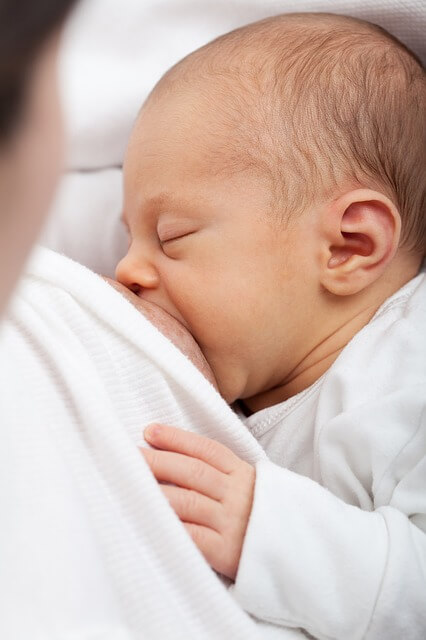
My mom explained that some women have breast tissue in their armpits and suggested it was milk engorgement. I called the lactation consultant from the hospital who agreed with my mom’s assessment.
Once I knew what was going on, my biggest fear with this situation was that I was going to have these annoying and unattractive lumps in my under arm for the duration of my breastfeeding life. Fortunately, after the initial engorgement period ended within a couple of days, I never experienced this again.
Personally, I felt really embarrassed and a little like a freak when it happened. If you have this uncomfortable experience, rest assured you are not the only one, and it’s just another one of those lovely things we go through for our child … Kind of like parading around naked in front of what appears to be the entire hospital staff roaring like a lion while pushing that child out of her cramped birth canal for four and a half hours.
6. You might not lose weight for a while even if you’re breastfeeding …
When I stepped on the scale roughly two weeks after giving birth, I was thrilled that 20 of the 30 pounds I had gained had magically fallen off! However, I later realized all that weight was likely comprised of baby, placenta, blood, and fluid.
Since I obviously no longer had 7 1/2 pounds of baby or my unusually large placenta in my body and I had lost copious amounts of blood during delivery (worthy of a crime scene as I’m told by my husband) and had sweated out buckets of fluid since the delivery … I probably hadn’t actually lost any fat.
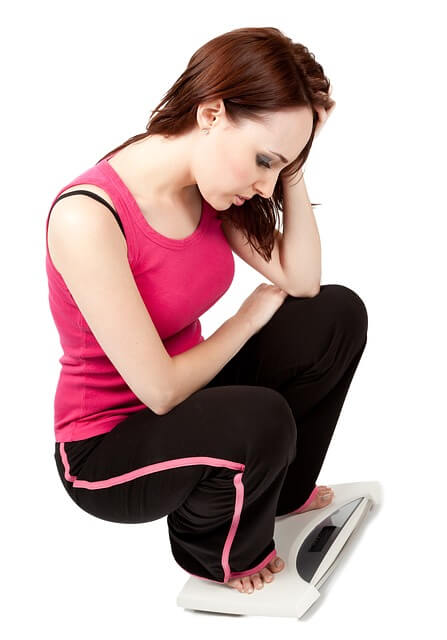
And I continued to retain all of my pregnancy-accumulated fat for three months. Since my daughter was three months old, I have gradually lost a pound or two at a time every two or three months only when I get sick.
My daughter is almost 13 months old and I finally just hit my pre-pregnancy weight on the scale last week – after a bout of illness of course (and my belly is still bigger than it was pre-pregnancy).
This has been extremely frustrating for me, but I think it would have been less frustrating if I had known it can be very difficult to lose weight while breastfeeding instead of believing breastfeeding would make the pounds melt away. Hopefully having this knowledge ahead of time will make it easier for someone else.
Instead of focusing on how skinny you want to be one week after giving birth (like I did), focus on being the best mom you can be to your child and recognize that there is nothing wrong with your body for refusing to shed the pregnancy weight. It is completely normal and common even though your friend looked like her movie star self within a month post partum.
Every woman’s body is different and will respond differently to the pregnancy and birth experience in many ways. Your body is not failing you and you are not failing your body if you still have some or all of your pregnancy weight six, twelve, or eighteen months post partum. If you are concerned or frustrated (which I 100% understand and feel with you), by all means, talk to your doctor about why your body still feels the need to hang onto that extra weight.
7. Your body might respond differently to hunger and exertion post partum, especially while you are breastfeeding …
Prior to my pregnancy with my daughter, I had only experienced that low blood sugar, shaky, have-to-eat-now feeling one time that I can remember. However, since being pregnant with her and especially since she was born, I experience that feeling a lot.
Although I (thankfully) never bought into the idea that you need to eat unimaginable amounts of food while pregnant and breastfeeding and I don’t feel like I eat all that much more than I did pre-pregnancy, I do get run down and shaky very easily now if I haven’t eaten in several hours.

Some practical advice on this: While it is important to eat enough to keep up your strength while taking care of a baby (especially if you’re breastfeeding), you will probably find that people tend to pressure you into eating more than you already do (kind of like during pregnancy), and it may not always be wise to follow everyone else’s guidelines on how much you “should” be eating.
I remember reading dietary guidelines on a medical website a few months post partum and being shocked at how much food was recommended for breastfeeding moms to consume each day. I already was not losing weight and I did not generally feel like I was not getting enough nutrition, so I disregarded everything people told me about stuffing my face.
I believe this new feeling I have of being tired and shaky when I desperately need to eat is my body’s way of telling me I have not been eating enough that day at which point I up my intake. Listen to your body rather than everyone around you to determine whether your body needs more food or not.
I also have become intolerant to any ongoing, vigorous exercise since giving birth. I’ve never been an athletic type, but I normally enjoy moderate exercise and working out. However, in the past year, I have found myself exhausted for days or weeks every time I try to get into a regular moderate exercise routine.

I attribute this to the extra demands on my body from breastfeeding as well as the hormonal changes in my body due to breastfeeding.
I have not yet found the balance of how much I can exercise to get cardiovascular benefit without overdoing it, but I am beginning to accept that this is not just me being weak or lazy and it’s not necessary to push myself beyond my limits to prove that. My body is doing an important job right now nourishing my baby – and with how often my baby/toddler still nurses, it’s a big job!
The moral of the story is, don’t let yourself become entangled in the messy and competitive world of trying to meet or exceed other people’s expectations. You need to do what is best for you and your baby.
8. Your cycle might not return for a long time if you’re breastfeeding …
I knew breastfeeding could delay your first post partum ovulation/period, but I thought this would only last about six months until my baby started solids. However, she’s over a year old now, I’m still nursing her, and I have yet to see my cycle return.
My daughter nurses around the clock and nurses frequently due to her reflux, so this is possibly what is keeping my body in infertile mode. It is possible for a breastfeeding mom’s cycle to return when her baby starts going longer between feeds and/or sleeping through the night.

Nursing suppresses the hormones that tell your body to ovulate, so there needs to be a long enough non-nursing stretch at some point for your body to think you are ready to be pregnant again and trigger ovulation.
9. You might actually feel less moody than normal for a few months after giving birth …
Finally, some good news! I was prepared to be an emotional wreck post partum since I had heard and read that your hormones can be really wacky as they adjust to your body’s new state sans baby. And I know this is the case for many women.
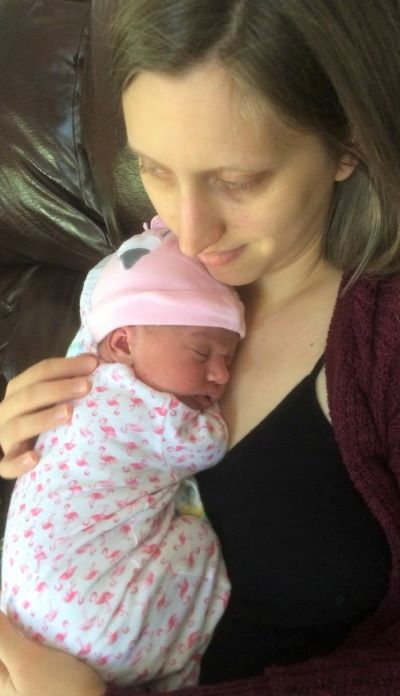
I was extremely pleasantly surprised to find that I felt great emotionally despite the long nights without sleep. My hormones were so good to me in this area. I was so pleased with my new role as mama bear to my miniature human and life just felt wonderful. My mom even commented that I seemed to be doing “really well” despite the lack of sleep. I cannot take credit for having a great attitude – I just felt good!
I was also very blessed to have a lot of help from my amazing husband and selfless mom who took care of household chores and watched my baby for a couple hours each day so I could shower and nap. I realize having all this help eliminated a lot of stress I might have otherwise had to deal with and I was fortunate to be able to just focus on taking care of my baby (who needed me constantly).
This wonderful state lasted about three months before I gradually started to feel “normal” again, which included feeling irritable when I didn’t get enough sleep and having crabby days which had been virtually non existent since my daughter’s birth … Almost makes me want to deliver a baby every three months!
10. You might not feel as much like an invalid as you thought you would post partum …
In the months leading up to my due date, I felt like EVERYTHING had to be taken care of before the baby was born, because I thought giving birth was equal to having a major procedure done and I would be bedridden for a month.
It turns out, becoming a mom is actually equal to becoming a superhero with special powers, because after spending 37 hours pushing a human being out of a relatively small opening in your body, you continue to do the normal life stuff that needs to be done and actually get very little bed time.

Sure, you climb into bed and car seats a little more gingerly while you heal (and shrieks of agony may actually be heard on the other side of the world when you aren’t quite ginger enough) and you take it slow the first time you go out of the house, but you won’t just lay in bed having food and drink brought to you … Partly because it is now your job to bring food and drink to a tiny baby with surprisingly loud demands.
Whatever your situation is, take every opportunity anyone offers you to rest while they watch the baby or do some housework for you. The fact is, those opportunities may become pretty sparse the older your child gets. Everybody wants to help out a woman who just gave birth, especially if it means holding a cuddly little newborn, but a lot of people aren’t as anxious to offer to babysit your toddler or bring you meals when you and your child have the flu …
Trust me, there will be plenty of opportunities to fine-tune your super-mom powers when you have to survive on your own. Enjoy the help whenever you can!
You might experience any number of unusual things post partum!
The purpose of this post is not to give you an all-inclusive list of possible after-birth experiences you will have because that is simply not realistic. Everyone’s experience is unique, but if we all share our birth and post partum experiences, we might just find some commonalities with each other and feel a little less alone in these sometimes awkward situations.
With that in mind, I would love to hear some of your after-birth body experiences! If you have a brief story or some advice that might help another mama, please share it in the comments!
If you found this post helpful, you may also be interested in reading my post on 10 Things You Can Easily Do Postpartum.


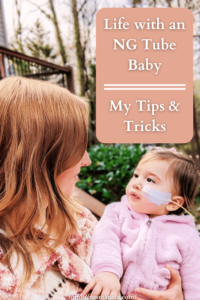
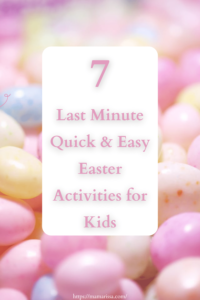
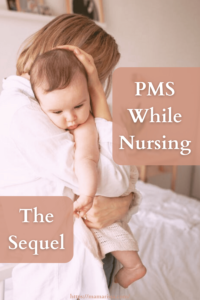

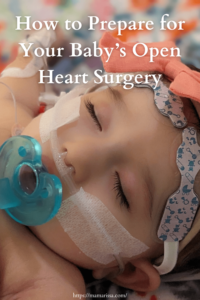

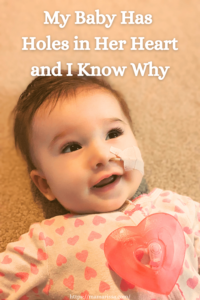
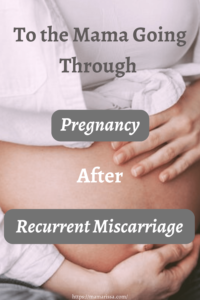

Leave a Reply